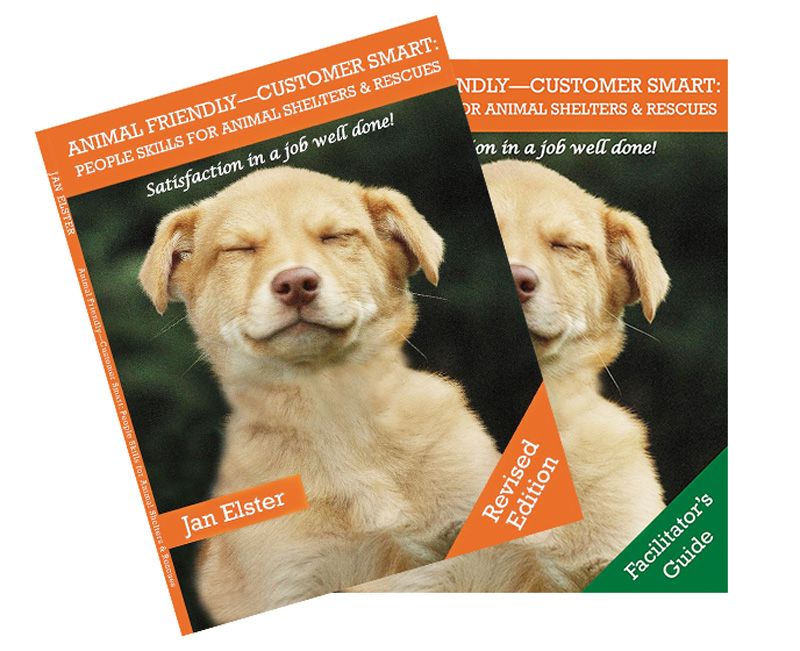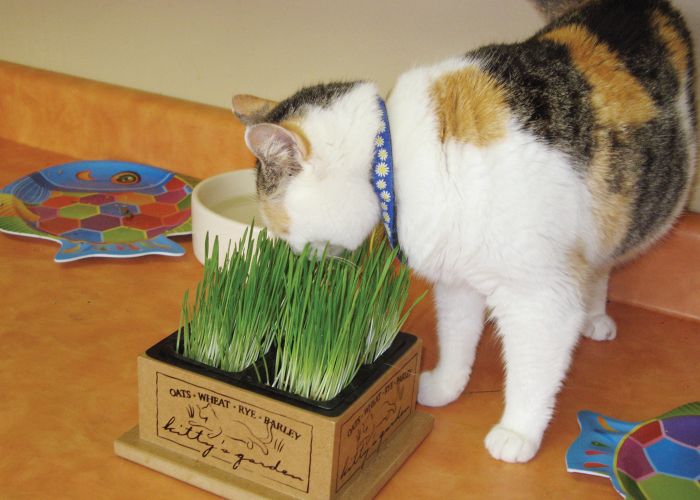Get (customer) smart
Guide teaches shelter staff to interact effectively with people

We’ve all heard that one before, and we’ve all probably been in enough situations to know how false it can be. When you add animals to the mix, dealing with people can be even more complicated, as consultant and trainer Jan Elster knows well from her 30-plus years working with shelters. That’s why in 2009 she published Animal Friendly—Customer Smart: People Skills for Animal Shelters & Rescues, a workbook to guide shelters through successful approaches to the unique customer service issues they face.
This year, Elster updated the workbook with better exercises and examples from the field that she considers more relevant. She’s also added a facilitator’s guide, so any shelter leader can coach staff through the workbook, eliminating the need to hire an outside trainer and allowing for more effective learning.
“The book itself has been a tremendous asset for the last few years in our industry, but I think having the guide to go along with it is a great way to empower organizations to sort of conduct their own customer service assessment and get folks brought up to speed on how to provide the best in customer care,” says Jim Tedford, president and CEO of the Society of Animal Welfare Administrators.
For the many shelters that don’t have the time or resources to send staff to trainings, the facilitator’s guide gives them the ability to do their own trainings, according to their own schedules.
“From both a time and cost perspective, it’s a very efficient way to get that training into organizations who desperately need it,” says Tedford.
The facilitator’s guide has three sections: how to use the guide and format the training, keys to being a good facilitator (including information about how adults learn) and outlines for teaching each chapter in the workbook.
“Everybody’s shelter situations are different, but the basics that are in that workbook can be applied to any shelter and any situation,” says Anne Oliver, director of volunteer services at Marin Humane Society (MHS) in California.

Long before Elster ever published her workbook, she was a consultant at MHS and taught classes there on various topics, including customer service.
“[Elster’s insights] really resonated with me,” says Oliver. “I thought it was terrific information, especially for people working in animal shelters.”
Once Elster decided to create a workbook, Oliver was among the leaders from MHS and other area shelters who offered input and advice.
Interacting with customers is an important part of shelter work, but with so many other priorities, it tends to get overlooked, says Tedford. “I think we spend so much time focusing on the animals and the care of the animals that sometimes we forget about the care of the people.”
But taking care of the people doesn’t mean yielding to their every whim or subscribing to the traditional customer service idea that you have to keep the customer happy above all else. Instead, Elster describes her methods as “customer smart.”
Customer smart has two components, she says: “What are ways to start out in a direction so that people feel welcome and comfortable so that they’re more likely to work well with you?” and “How do you deal with that situation or that highly difficult person without losing it yourself and without getting so stressed out that you respond poorly and make it worse so that it escalates?”
At MHS, following this approach has not only improved customer relations but also helped with compassion fatigue, because it allows staff to have more positive interactions than negative ones, says Oliver.
“Being customer smart teaches people how to be in control and how to take control and turn things around so that they feel better overall at the end of the day,” she says. “And that’s really significant.”








